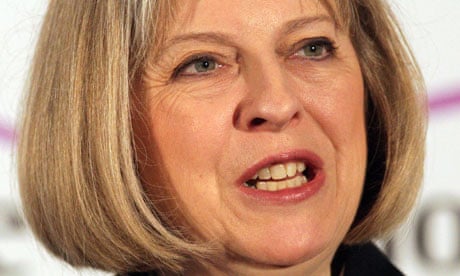Universities across the country will have to close vital science and engineering courses and sack staff unless the home secretary, Theresa May, drops controversial plans to limit UK visas for international students, a powerful alliance of vice-chancellors has warned.
In a letter to the Observer, 16 vice-chancellors express their "profound concern" at the proposals, making clear that they will have a devastating effect on universities' incomes and their ability to run the best courses for British, as well as overseas, students. Their intervention will stoke a cabinet battle that has pitted May, who is committed to cut net immigration from 215,000 to 100,000 by 2015, against the business secretary, Vince Cable, and the universities minister, David Willetts.
Cable and Willetts are known to be deeply concerned about the damage to universities and the economy if the £5bn-a-year income universities get from overseas students is choked off.
The vice-chancellors, many of whom have lobbied ministers privately in recent weeks, have gone public with the joint letter just days after a 12-week Home Office consultation over the changes was concluded. A decision from ministers is imminent.
The vice-chancellors say they are "fully aware" of public concern about abuse of immigration rules by bogus students and colleges, and promise to continue playing their part in combatting it. But they insist that "international students in universities overwhelmingly do not abuse the system" and are instead a welcome and much-needed part of the university system.
They add: "International students coming to universities contribute over £5bn each year to the UK economy through tuition fees and off-campus expenditure. Reductions in student numbers will lead to reductions in income and jobs.
"Without international students, many university courses, particularly science and engineering, may no longer be viable. This will in turn reduce the courses available to UK students.
"International students bring extensive cultural and political benefits to the UK. When they return to their countries at the end of their studies, they become cultural and economic ambassadors for the UK. At a time of financial austerity, this issue is of immeasurable importance to the UK."
The proposals would affect students from outside the EU applying for visas under what is known as tier four of the points-based system. These accounted for two-thirds of the 273,000 visas issued to students in 2009.
Damian Green, the immigration minister, has said that the government is fully aware that attracting talented students from abroad is strongly in the UK's interests but argues that there is a need to be more selective about who can come and for how long.
Gareth Thomas, Labour's higher education spokesman, said: "The government doesn't understand just how damaging these politically driven changes are set to be for our universities. With universities set to lose 80% of their teaching funds, and research money being cut back too, the loss of income from overseas students is likely to push tuition fees for home students even higher.
"It's not too late for the government to sit down with universities and student representatives to rethink these ill-thought-out plans."
The Home Office estimates that 14% of language school students on tier four visas, and 26% of those studying in private institutions, are breaking immigration rules.
The government wants to cut the number of visas to those wanting to study at courses below degree level, and to require a higher standard of English. But universities argue that many international degree students are recruited from non-degree courses, on which they have improved their English and increased their knowledge.
The public consultation received more than 30,000 responses. It asked for views on plans to introduce tougher language requirements for people coming to the UK to study at below degree level. It also proposed that students wishing to extend their studies show evidence of academic progression and suggested limiting students' entitlements to work and their ability to bring in dependants.
A Home Office spokesperson said all views expressed in the consultation would be taken into account. "Any criticism can only be based on speculation as no decisions have yet been made on the changes to the student visa route. However, universities that are confident in the product they have to offer genuine students should have nothing to fear from policies that root out abuses in the student visa system."
